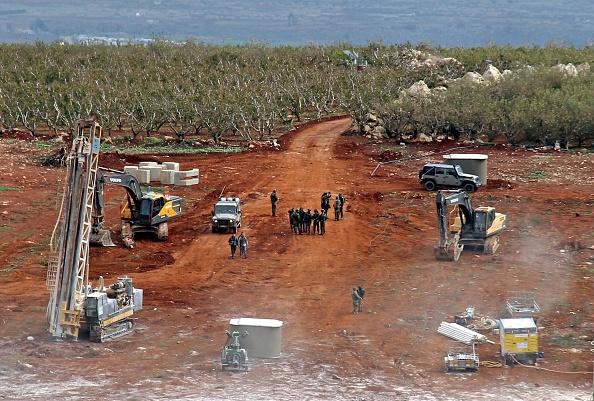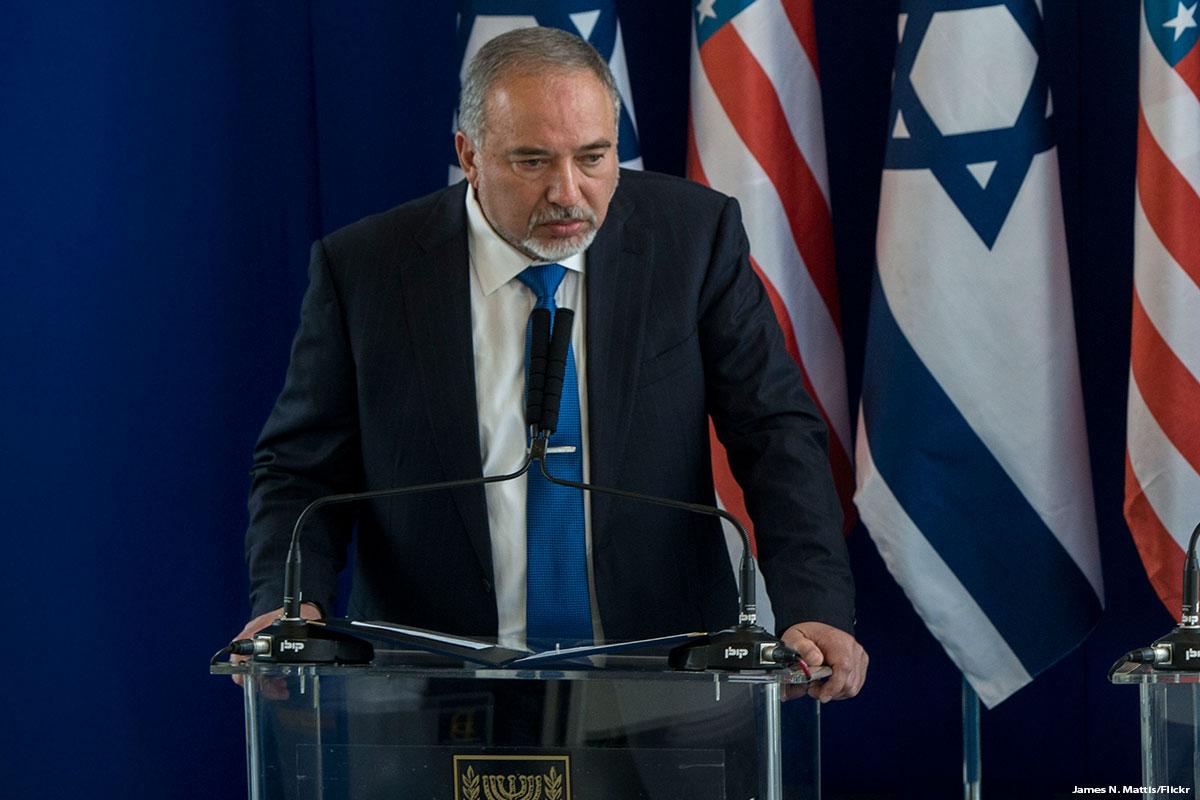While I was writing this article, Hezbollah Secretary-General Hassan Nasrallah announced that any operation launched by Israel against Lebanon will be dealt with as a declaration of war. If Israel makes any mistakes, he claimed, the entire “axis resistance” is ready to retaliate.
Nasrallah made his statement after a silence of several months. It coincided with the annual strategic assessment issued by Tel Aviv University’s Institute for National Security Studies. “Tension also exists between very strong basic deterrence, which prevents Israel’s adversaries from initiating wide scale military action, and the military and security challenges that lie below the threshold of war,” said the Institute. “These tensions contribute to potential volatility on all of Israel’s main fronts: Syria, Lebanon and the Gaza Strip. In spite of the ‘mutual deterrence’ that exists, these fronts are also characterised by the potential for deterioration into large scale confrontation and outright war, which might occur on more than one front at a time.”
Israel believes that if this scenario of a comprehensive military confrontation comes into being, then it could find itself facing an “all party war” against Iran, Syria, and Hezbollah in the north and the Palestinian resistance movements in Gaza in the south. It needs to be prepared for them all.
The statements by archenemies Israel and Hezbollah prompt a number of questions. Will, for example, Israel launch an attack on these fronts collectively or individually, or will these fronts launch a collective attack on Israel? What is the Palestinians’ position on joining Iran and Hezbollah? What will Iran and Hezbollah’s position be in the event that Gaza is attacked by Israel?

These developments have been preceded by the Israelis ending “Operation Northern Shield”, the campaign to expose Hezbollah’s tunnels. The Israeli, Palestinian and Lebanese positions indicate the potential for engaging in a multi-front confrontation. Israeli Prime Minister Benjamin Netanyahu commented on this by saying that, “Israel is operating divisively and responsibly on all fronts simultaneously.” It was as if he was suggesting the possibility of the opening of other fronts in Gaza or Syria if a war between Hezbollah and Israel erupts.
Hezbollah is apparently monitoring Israel’s moves on all fronts: “We are an integrated chain, and we cannot separate Gaza from Lebanon. Our enemy is one regardless of the number of fronts involved. We will not let one front face Israel alone.” This indicates the position of the axis, led by Iran, on the potential to engage in fighting on multiple fronts and opens the door to discussions about such a scenario. Are Hamas and the Palestinian factions prepared for this?
Iran is viewed as the main supporter of the factions, which gives it the authority to decide when to launch hostilities on a number of fronts. It will present the Palestinians with the challenge of responding positively or rejecting Iran’s demand. It is worth noting that Iran’s assessment of such involvement is that it is necessary to produce a crossfire and a united anti-Israel front. However, the Palestinians expected Hezbollah to support them during Israel’s military offensives in 2008, 2012 and 2014, but the Lebanese group did nothing apart from issue a statement in solidarity, and that took 17 days to be sent out.
Today, the Iranian-led axis is re-assembling, and its members believe that collective responses to Israeli action are justified on a moral and national level, and in their best interest. Without a united front, Israel could pick its battleground and after ending its war against Hezbollah, for example, could then open up a front against the Palestinians in Gaza. This could give the confrontation a limited rather than a regional aspect.
The Israelis believe that Iran is interested in escalating tension in the region because it is facing US sanctions that came into force in November. Thus, it believes that Iran may prompt a military confrontation between Hezbollah and Israel and then seek a deal in which it hopes to ease the harsh US sanctions.
Even if Iran pushes its allies to act against Israel, former Defence Minister Avigdor Lieberman said that his country is capable of confronting multiple assaults, fighting simultaneously against both Hezbollah in Lebanon and Hamas in Gaza. The outbreak of such a multi-front war is likely given that we have witnessed a recent development in the Palestinians’ relations with Iran, which could make participation in an Israeli war against Hezbollah or Syria likely, despite their own sensitive situation and the difficulty of assessing outcomes.

Aside from its bellicose statements, Israel is unlikely to risk attacking Hezbollah targets in Lebanon for fear of the movement’s response, which will lead to an inevitable war on the southern front. The situation in the south is similar to that in the north. The last round of confrontations with the Palestinians in the Gaza Strip ended with unexpected results for Israel; it lost some of its “deterrence factor” by not responding to missiles fired from the besieged enclave. This was noticed very clearly by the Iranians, the Syrians and Hezbollah, encouraging them to carry out hostile operations. The Israel Defence Forces (IDF) are so far controlling themselves, perhaps in preparation for a harsh blow against the rocket factories in Lebanon or more Iranian bases in Syria. Such operations could be enough to trigger a full scale war.
Another closely linked development has been the speed at which Palestinian factions condemned Israel’s attacks on Iranian military bases and Hezbollah weapon shipments in Syria earlier this month. We may thus be seeing the unified front coming into being, ready to operate against Israel from Syria, Lebanon and the Gaza Strip, given Iran’s strengthening of its military relations with the Palestinian organisations through General Qasem Soleimani, the commander of the Quds Force in the Iranian Revolutionary Guard Corps. Iran will retaliate for Israel attacking the occupied Palestinians territories and, in doing so, humiliating the Islamic Republic.
Israel claims that this Iranian approach is no surprise, as the Palestinian factions’ military wings are an integral part of the Iran-led axis operating against the Zionist state. Tehran continues to send money to these units in order to send Israel a message that they are one of the four components of the axis alongside Iran, Syria and Hezbollah.
This sets up the Iranian dream to surround Israel and launch thousands of rockets, resulting in massive destruction and the displacement of its citizens. This would ignite all of the military fronts at once.
Iran and Israel are both talking more and more about the unification of combat fronts in light of the escalation of the Israel-Iran-Syria confrontation. This could push Tehran to try to provoke Tel Aviv via other military fronts by targeting sites within or outside Israel. As long as the latter seems to have the upper hand in the ongoing confrontation, Iran will continue to look for a soft spot to target.
Moreover, the Israeli intelligence agencies have occasionally announced the dismantling of pro-Iran espionage cells in the occupied West Bank. They also claim that Iran has tasked them with recruiting militants to wage attacks against Israelis and has sent them funds. Israeli accusations about Iran operating within the Palestinian arena prompt a number of questions about how much accurate information Israel possesses, and the reason for the accusations at this particular time.
Iran makes no secret of its desire to escalate the confrontation with Israel and has various means to deliver weapons and money to the occupied Palestinian territories; it also has control over certain waterways near the Horn of Africa. Furthermore, it could take advantage of events in Syria to get closer to the borders with Palestine and Jordan, which would pose a challenge to Israel and the Palestinian Authority which are both eager to stop Iranian weapons crossing into occupied Palestine. This could lead to an increase in security coordination between the two.
Finally, Iran’s attempt to unite the fronts against Israel, with the Palestinians at the heart of the strategy, is based on providing funds and weapons to the military cells, not the formation of armed groups with direct links to Tehran, which are unlikely to succeed. The government in Tehran is not interested in finding armed groups outside those which already support Iran, such as Hamas and Islamic Jihad. This does not contradict with Iran’s aspirations in the Palestinian arena, and its extensive efforts to boost its influence by supporting armed forces in the occupied West Bank with money and weapons.
Cover photo: A man carries a giant flag made of flags of Iran, Palestine, Syria and Hezbollah, during a ceremony marking the 37th anniversary of the Islamic Revolution, in Tehran February 11, 2016.






